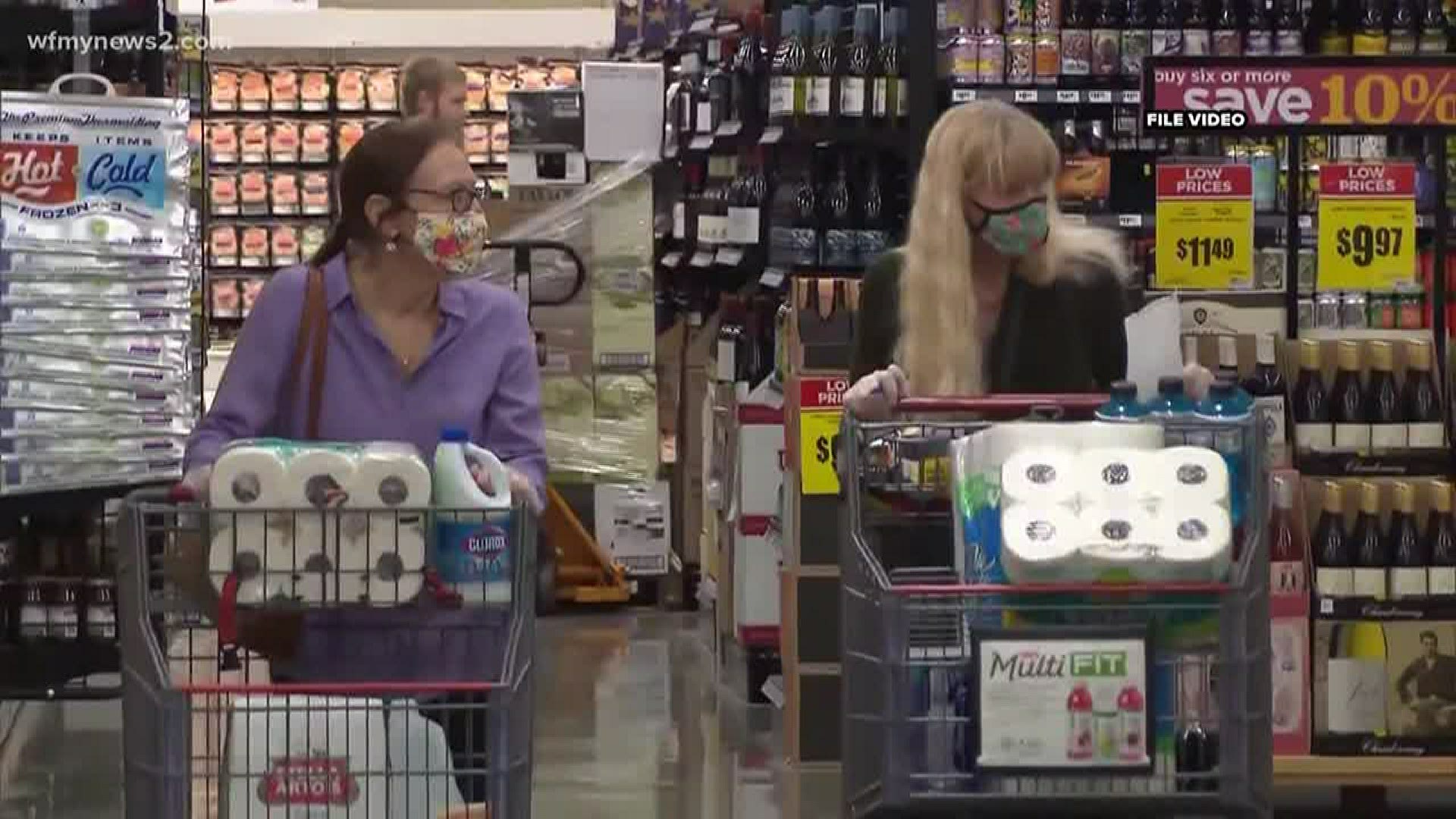GREENSBORO, N.C. — Grocery stores nationwide are taking the necessary safety precautions to protect shoppers and workers amid the coronavirus pandemic. That includes cleaning common areas often, adding extra hand sanitizer at cashier stations, enforcing product limits, offering senior shopping hours, and much more.
Even though some grocery stores may be temporarily out of certain products, there are no nationwide shortages of food. In fact, the FDA says, shoppers are getting most of their food from grocery stores. Many stores have also modified operating hours to allow for more time to restock shelves and clean common areas.
The FDA says there is no evidence that the coronavirus is spreading through food or on food packaging. But, the agency is still offering a grocery shopping guideline to help shoppers and workers stay safe during the health crisis.
To help protect yourself, grocery store workers, and other shoppers, it is important to keep a few things in mind:
- Prepare a shopping list in advance. Buy just 1 to 2 weeks-worth of groceries at a time. Buying more than you need can create unnecessary demand and temporary shortages.
- Wear a face covering or mask while you are in the store. Some stores and localities may require it. Check your state, county or city guidelines for any other requirements.
- Carry your own wipes, or use one provided by the store to wipe down the handles of the shopping cart or basket. If you use reusable shopping bags, ensure they are cleaned or washed before each use.
- Practice social distancing while shopping – keeping at least 6 feet between you, other shoppers, and store employees. Keep your hands away from your face.
- Wash your hands with warm water and soap for at least 20 seconds when you return home and again after you put away your groceries.
- Again, there is no evidence of food packaging being associated with the transmission of COVID-19. However, if you wish, you can wipe down product packaging and allow it to air dry, as an extra precaution.
As always, it is important to follow these food safety practices to help prevent foodborne illness:
- Before eating, rinse fresh fruits and vegetables under running tap water, including those with skins and rinds that are not eaten. Scrub firm produce with a clean produce brush. For canned goods, remember to clean lids before opening.
- When unpacking groceries, refrigerate or freeze meat, poultry, eggs, seafood, and other perishables—like berries, lettuce, herbs, and mushrooms—within 2 hours of purchasing.
- Regularly clean and sanitize kitchen counters using a commercially available disinfectant product or a DIY sanitizing solution with 5 tablespoons (1/3rd cup) unscented liquid chlorine bleach to 1 gallon of water or 4 teaspoons of bleach per quart of water. WARNING: Do not use this solution or other disinfecting products on food.
- Always keep in mind the basic 4 food safety steps — Clean, Separate, Cook, and Chill.
For more information on shopping for food during the COVID-19 pandemic, click here.

